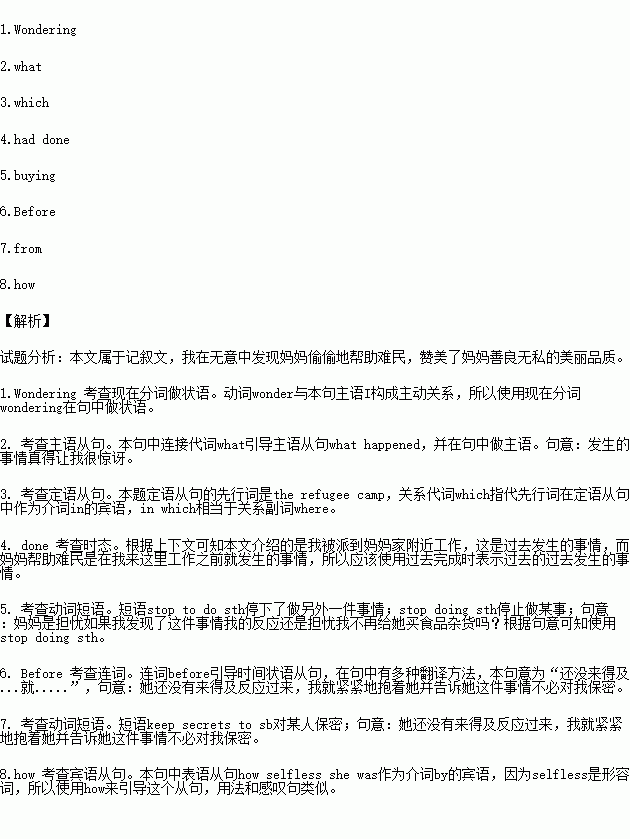题目内容
Section A
Directions: After reading the passages below, fill in the blanks to make the passages coherent and grammatically correct. For the blanks with a given word, fill in each blank with the proper form. of the given word; for the other blanks, use one word that best fits each blank.
(A)
Bags of Love
Last year, I was assigned to work at an office near my mother’s house, so I stayed with her for a month. During that time, I helped out with the housework and contributed to the groceries.
After less than a week, I started noticing that the groceries were running out pretty quickly — we were always suddenly out of something. 1._______(wonder) how my mum could consume them so quickly, I began observing her daily routine for two weeks. To my surprise, I found that she would pack a paper bag full of canned goods and head out every morning at about nine. Eventually, I decided to follow her and 2._______ happened truly amazed me. She was taking the food to the refugee camp, in 3._____ she distributed it to children.
I asked around and found out that my mum was very well known in the area. The kids were very friendly with her and even looked up to her as if she were their own mother. Then it hit me —why would she not want to tell me about what she 4.____(do)? Was she worried about how I would react or that I would stop 5.____(buy) the groceries if I found out?
When she got home, I told her about my discovery. 6._____ she could react, I gave her a big hug and told her she didn’t need to keep it a secret 7._____ me. She told me that some of the children lived with an older lady in a shelter while others slept on the streets. For years, my mum has been helping out by giving them whatever food she could spare. I was so impressed by 8.____ selfless she was.


